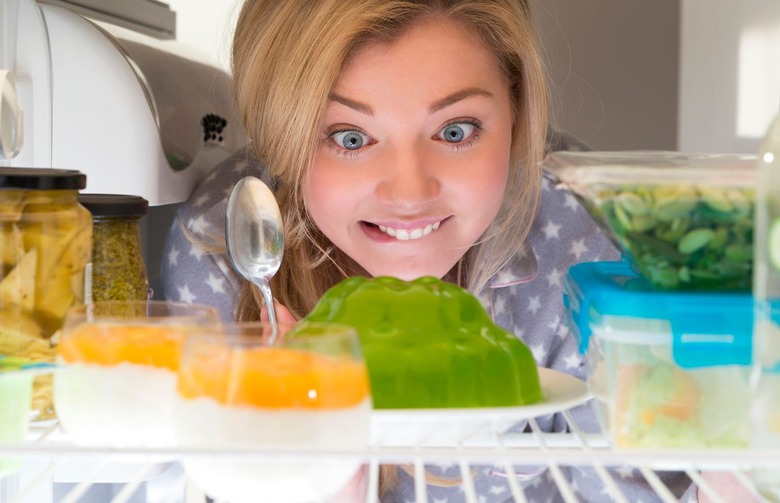Does Jell-O Actually Have Horse's Hooves In It?
On the outside, Jell-O seems like the most benign food in existence. It's just a sweet, jiggly thing made by mixing powder and water! The ingredients are far less involved than most other snack foods as well; it's nearly entirely sugar and gelatin. But there's been a rumor going around for ages that the gelatin in Jell-O doesn't come from, say, plants; a lot of people believe that it's made by grinding up horse's hooves. Is there any truth to this?
If your question is, "Is Jell-O made with horse's hooves?" then the answer is a firm no. But it's a little more complicated than that.
Gelatin, Jell-O's primary ingredient, is made of collagen, a protein. You know how your lips get sticky when eating barbecue or another slow-cooked meat? That's the collagen that's rendered from connective tissue inside the meat during the cooking process (homemade stock also contains a lot of rendered collagen, which is why it solidifies once chilled). Collagen is actually the most prevalent protein in animals, and is found primarily in bones and skin.
In order to make commercial-grade gelatin, bones and hides of cows and pigs are boiled, cured, treated with acid and alkali, and filtered repeatedly during a multi-week process until the collagen has been thoroughly hydrolyzed, at which point it's dried, ground, and sifted into a powder. The resulting product is nearly 100 percent protein, and is so pure that it's not even categorized as an animal product by the federal government.
One part of the animal that doesn't contain any gelatin? The hoof. That's made of keratin, a tough protein that's also the main ingredient in turtle shells and fingernails. You can't extract collagen from keratin, but it can be turned into a mighty fine glue.
